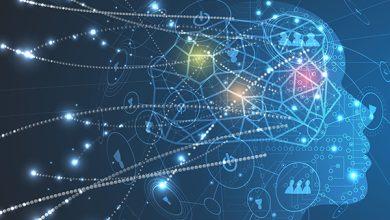
In this article, Gita Singham-Willis, Strategic Engagement Director at Transform UK, explores how to navigate the modern business environment.
Driven by rapid technological advancements, evolving employee expectations, and an unpredictable geopolitical landscape, organisations face unprecedented challenges and opportunities. While the conversation often focuses on the immediate impact of AI and automation, true futureproofing requires a more holistic, human-centred approach that goes beyond technological adoption.
Technology, particularly AI, is the primary catalyst for current workplace transformation. Jobs are being redefined, with many routine tasks set to be automated. This naturally requires a fundamental shift in the skills and capabilities individuals and organisations will need to thrive.
Beyond technology, societal shifts, such as the expectations of Gen Z and the increasing multi-generational workforce, are also reshaping how work is done and perceived. In addition, the post-Covid landscape has further strengthened the desire for greater work-life balance and flexible working models.
The challenge: Uncertainty, governance, and the skills gap
The speed of technological change often outpaces the development of ethical guidelines and governance frameworks, let alone wider regulation. This creates a disorienting environment where organisations and employees face uncertainty. The ethical implications of AI, data privacy and security, and the sheer volume of change can be overwhelming, as leaders also struggle to keep pace with innovation while ensuring responsible implementation.
This rapid evolution impacts every level of an organisation:
- Employees face anxiety about job security and the need to acquire new skills, often without clear guidance on what to learn or how to learn it effectively.
- Leaders navigate the dual challenge of maintaining stability and driving innovation, all while ensuring their workforce is adequately skilled and engaged. They also face the complex task of understanding and addressing the ethical dilemmas posed by new technologies.
- Organisations must consider how these changes impact customer interactions, operational models, and their overall ability to deliver value.
A significant obstacle is the inherent human resistance to change. While individuals might readily embrace new technologies in their personal lives, workplace adoption often encounters distrust and discomfort with unfamiliar systems.
The need for human skills: Judgement and critical thinking
While basic training in using new tools is essential, it’s far from sufficient. The real differentiator in the future workplace will be the human capacities of judgement, critical thinking, and creativity. As AI automates routine tasks, employees will need to ascend to roles that require higher-order cognitive skills, such as evaluating AI outputs, making nuanced decisions, and innovating beyond predefined domains.
The challenge is significant:
- Accelerated learning: If AI streamlines the “lower rungs” of traditional career ladders, how do we ensure individuals gain the foundational experience and judgement necessary for complex roles? The traditional path of learning through incremental responsibility will be disrupted.
- Scaling judgement: How do organisations cultivate critical thinking at scale? It’s about fostering an environment where employees are trained to ask the right questions, analyse information discerningly, and apply ethical considerations.
- Creative iteration: Without human judgement and a continuous improvement mindset, there’s a risk of stagnation, where individuals simply input data and accept AI’s output without deeper thought or refinement.
Futureproofing through human-centred design
It’s critical to embrace a transformative approach that views technological integration as a fundamental shift in the operating model. This is not just an IT project. It involves:
1. Redefining the operating model from the top down
Instead of retrofitting AI onto existing processes, we must start with a clear vision of desired business outcomes. From there, we can strategically design where human talent and technological capabilities best intersect. This means proactively identifying what parts of the business will be human led (such as creative problem-solving, complex client relationships, ethical oversight) and what can be effectively augmented or automated.
2. Cultivating an ecosystem of learning and collaboration
The future workforce will likely be more fluid, with individuals pursuing fractional careers. This requires fostering an environment of continuous learning and cross-organisational collaboration. Businesses might find value in pooling resources for complex, human-led functions (such as specialised customer support across multiple companies), allowing for more efficient use of highly skilled individuals.
3. Balancing soft skills and mindset shifts, whilst harnessing new skills and capability in technology and innovation
Training must extend beyond technical proficiency to encompass critical thinking, problem-solving, creativity, and empathy. Leaders must become more inclusive and adaptable, capable of managing increasingly diverse skill sets and motivations within their teams. This also means demonstrating personal engagement with new technologies, leading by example, and leaving no one behind.
4. Approaching change as a holistic programme
Integrating AI into your business is a complex change management programme. Organisations must address the cultural aspects of adoption, build trust in new systems, and acknowledge the emotional impact of automation on employees. This involves understanding individual comfort levels with technology and providing tailored support to ensure equitable adoption across all demographic and skill groups.
While definitive answers in today’s evolving workplace are still emerging, we can navigate this landscape effectively by actively exploring challenges, fostering continuous learning, and focusing on human judgment and creativity alongside technological advancements. This approach will help ensure a thriving future for both individuals and businesses.
At Transform, we work with organisations to embrace the future with confidence. We help them harness the power of AI to drive innovation, streamline operations, and uncover new data opportunities. Our experts craft tailored solutions, from machine learning and automation to AI-driven analytics, turning data into actionable insights and guiding you where you are on your journey – whether you’re exploring AI for the first time or enhancing your existing capabilities.


